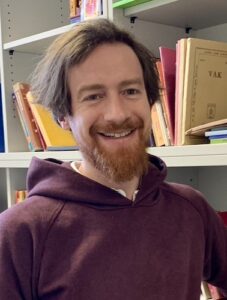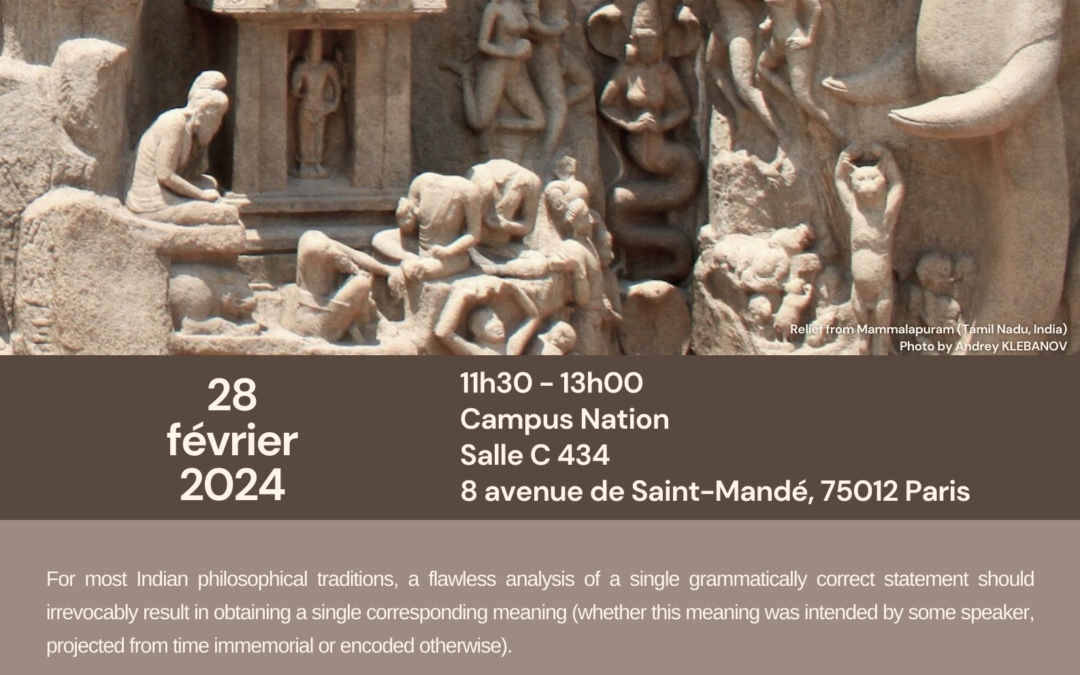When pun is intended.
Semantic processing of Sanskrit puns (śleṣa) according to Appayya Dīkṣita.
For most Indian philosophical traditions, a flawless analysis of a single grammatically correct statement should irrevocably result in obtaining a single corresponding meaning (whether this meaning was intended by some speaker, projected from time immemorial or encoded otherwise). However, this usual one-to-one relationship is disrupted when it comes to analysing punning verses and sentences, that is, poetic utterances purposefully formulated in such a way as to express two or more meanings simultaneously. It was then, on the scholars of the newly emerging field of poetics (the so-called alaṃkāraśāstra) wishing to engage in a dialogue with “senior” disciplines to propose an analytical framework capable to account for this anomaly.
A standard theory was put forward by an influential 11th-century theoretician, Mammaṭa, in his canonical work Kāvyaprakāśa by incorporating the analysis of polysemic words and expressions proposed by the great 5th-century grammarian and philosopher Bhartṛhari. In view of the existing theories, Mammaṭa asserted that some puns rely merely on the fundamental linguistic phenomenon of polysemy and thus demand nothing more than a thorough acquaintance with the various “dictionary meanings” of individual words. However, he deemed another large group of puns inexplicable outside of the context of poetry (or, rather, belles lettres in general) — the context that furnishes words and utterance with the capacity to “implicate” or “suggest” (vi+√añj) further meanings that remained inaccessible otherwise.
Mammaṭa’s proposition remained unchallenged until the 16th century, when another renowned scholar, Appayya Dīkṣita, proposed an alternative theory. He pointed out that Mammaṭa’s views were not only counterintuitive and contradicted the shared reading experience of many a connoisseur but also flawed with unsound reasoning and a misunderstanding of the seminal theory furnished by Bhartṛhari.
In my talk, I will first provide a brief introduction to several basic concepts of the alaṃkāraśāstra, and then I will summarise Mammaṭa’s treatment of the fundamental problem at hand. Subsequently, I will focus on Appaya Dīkṣita’s novel proposition that the author discussed with an emphasis on slightly different aspects of the theory in each of his three works on alaṃkāraśāstra, the Kuvalayānanda, the Citramīmāṃsā and the Vṛttivārttika.
- Organisers: Émilie Aussant (USN) and Vincent Eltschinger (EPHE-PSL)
- Guest: Andrey Klebanov, University of Vienna
- Date and time: Wednesday 28 February 2024, 11:30am-1:00pm
- Venue and room: Campus Nation, room C 434; 8 avenue de Saint-Mandé, 75 012 Paris
Download Andrey Klebanov’s CV >>
About our guest

Andrey KLEBANOV
Dr. Andrey Klebanov studied Classical Indology and Tibetology in Göttingen and Hamburg, where, in 2010, he received his Magister degree. His final thesis was concerned with the study of an ancient āyurvedic text, the Suśrutasaṃhitā, and its early transmission in Nepal. His engagement with this topic led, among other things, to an appointment at the NGMCP (Nepalese-German Manuscript Cataloguing Project) office at Hamburg University, where he worked on preparing a catalogue of Sanskrit manuscripts preserved at different libraries and archives in Nepal. In 2012, Dr Klebanov enrolled in the doctoral programme at Hamburg University and, during the preparation of his thesis, spent a substantial amount of time studying and researching at the EFEO (École française d’Extrême-Orient) centre in Pondicherry, India. In his doctoral dissertation, completed in early 2017 and published online, Dr. Klebanov turned his attention to the commentarial literature on Sanskrit belles-lettres and studied several commentaries on a classic work of Sanskrit poetry, the Kirātārjunīya by Bhāravi. During this time, Dr. Klebanov became invested in the study of Indian scholastic traditions, mainly those of vyākaraṇa (grammar) and alaṃkāraśāstra (poetics), which became the main focus of his subsequent teaching and research. From 2016 until 2021, he was appointed a senior lecturer at the Graduate School of Letters at Kyoto University in Japan. There, he taught graduate and post-graduate students specialising in Classical Indology, Buddhist Studies, Transcultural Studies and other related fields.

